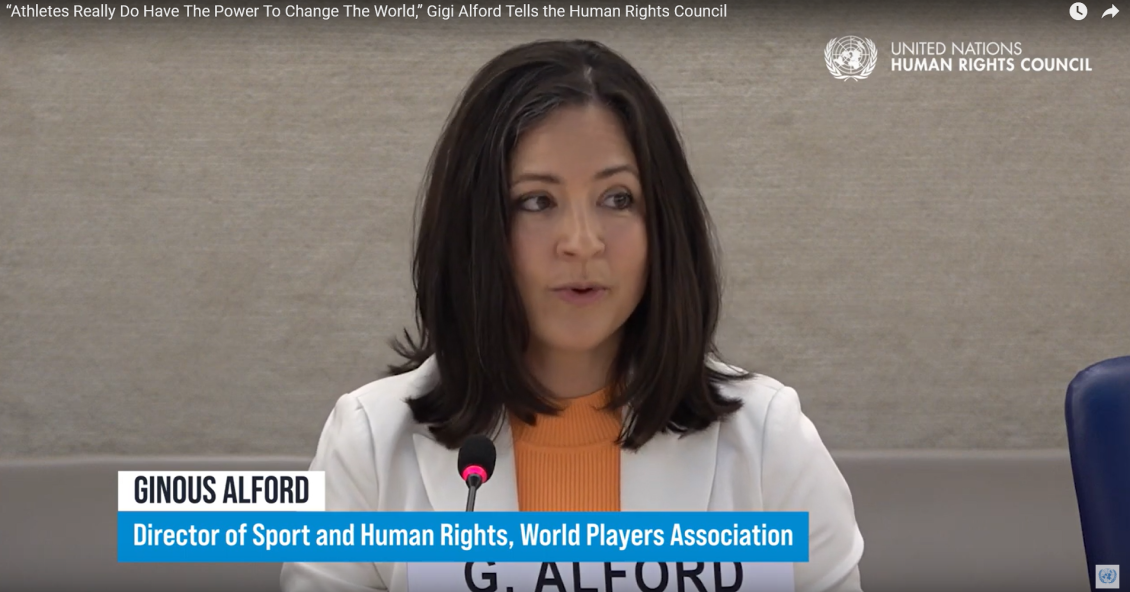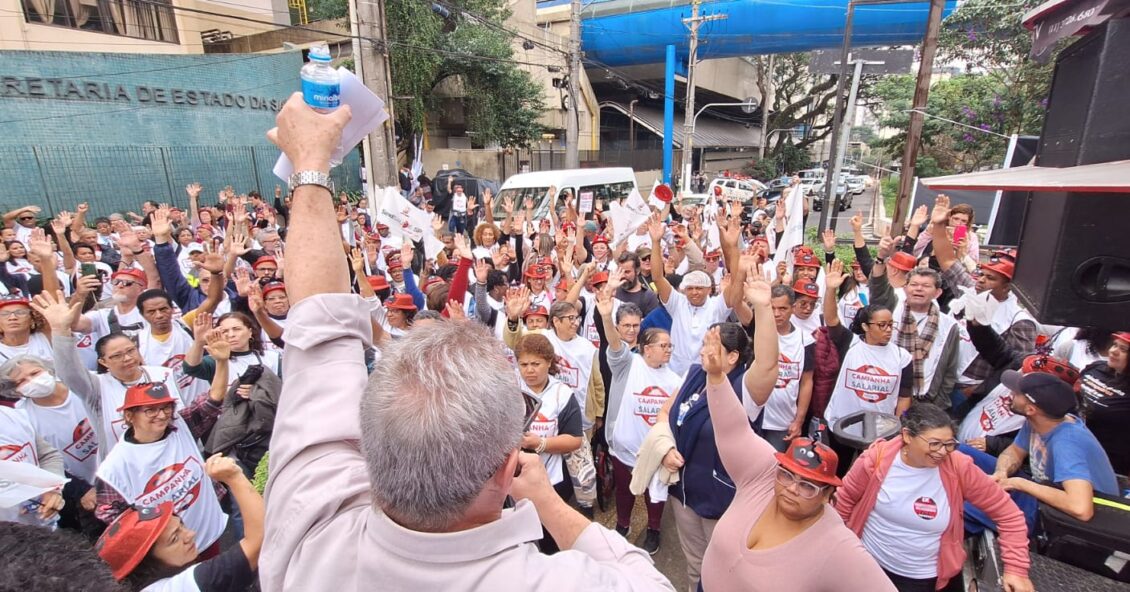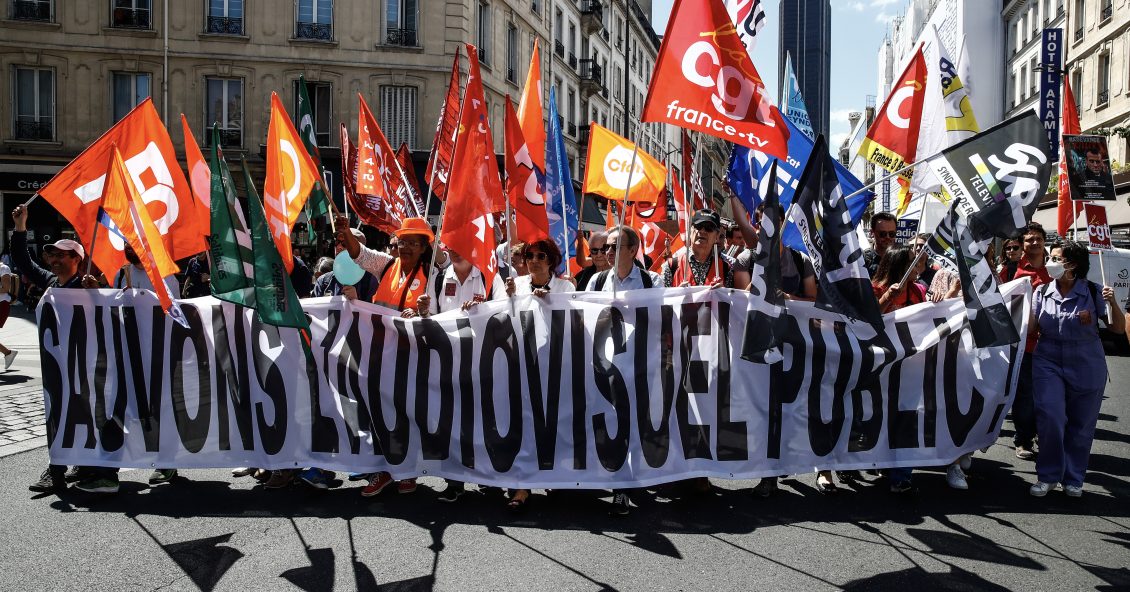World Players Association to UN Human Rights Council: “Stick With Athletes Who Don’t Stick to Sports”
08.07.24
The World Players Association elevated the voices of professional athletes and their unions at the United Nations Human Rights Council’s quadrennial panel on sport and human rights. In July 2024, with the season of mega sporting events in full swing, the Office of the High Commissioner for Human Rights convened governments, experts, civil society and leaders from the UN and International Olympic Committee (IOC) to discuss the theme of inclusiveness in and through sports.
World Players highlighted the need to genuinely include athletes and their independent representatives in the governance of global sport in order for the UN, its Member States and other stakeholders to achieve the shared goal of aligning sport and human rights under the same universal values.
Based on the experiences of organized players worldwide and the extensive research and policies of player associations across many different sports and countries, World Players made key recommendations to the Human Rights Council to ensure athletes enjoy full access to their internationally guaranteed human rights, including those under the International Labour Organization’s Fundamental Principles and Rights at Work.
Alford said: “Athletes are ready to play in a different world. They need a level playing field. Are States ready to support them?”
READ ALFORD’S FULL REMARKS HERE.
Every four years, the Human Rights Council convenes a discussion on promoting human rights through sport and the Olympic ideal in the lead up to the Summer Olympic Games, concurrently with a resolution under the same name that is led by Greece and co-introduced by States that have recently or will soon host a major global sporting event, such as the Olympics or FIFA World Cup.
This year, the panel marked ten years since the landmark open letter from the late John Ruggie, former UN Special Representative to the UN Secretary General on Business Human Rights, and Mary Robinson, former UN High Commissioner for Human Rights, declaring to then FIFA President Sepp Blatter on the eve of the Brazil FIFA Men’s World Cup that the UN Guiding Principles on Business and Human Rights apply to mega-sporting events.
This anniversary offers an important inflection point to reflect on how far we’ve come in the past decade and how far we have still to go to realize sport’s potential to be a genuine force for good, including in sporting, economic, environmental, social and cultural terms.
Alford noted that one reason progress is stalled on the sport and human rights project is that athletes still don’t have an equal say in the decisions that affect their lives. The decade ahead, she said, offers plenty of challenges and opportunities to address the significant harms that arise from this imbalance of power in the world of sport. She urged States to ensure all parties recognize athletes as people, as workers when that is in fact the case, and as individuals with their full range of intersecting identities that afford them specific rights and protections.
Volker Türk, the UN High Commissioner for Human Rights, observed in his opening remarks that athletes are increasingly speaking out, either because they have been victims of violations themselves, or to denounce more systemic issues and injustice. They do this at great risk to themselves and to their careers, he said.
Türk continued: “These athletes must be supported and protected, in the same way that we support all human rights defenders, and by ensuring that they have avenues to speak out and seek redress, safely and without fear of reprisals.”
He cited a recent exchange between his Office and affiliates of the World Players Association to discuss empowering athletes to use the human rights mechanisms to promote their rights.
READ TÜRK’S FULL REMARKS HERE.
Thomas Bach, President of the IOC, also offered opening remarks. Other panelists were the UN Special Rapporteur in the field of cultural rights, Alexandra Xanthaki; Iraqi table tennis Paralympian Najlah Imad Al-Dayyeni; and IOC Member Yiech Pur Biel, a refugee from South Sudan and member of the inaugural IOC Refugee Olympic Team at the 2016 Rio Summer Games.


